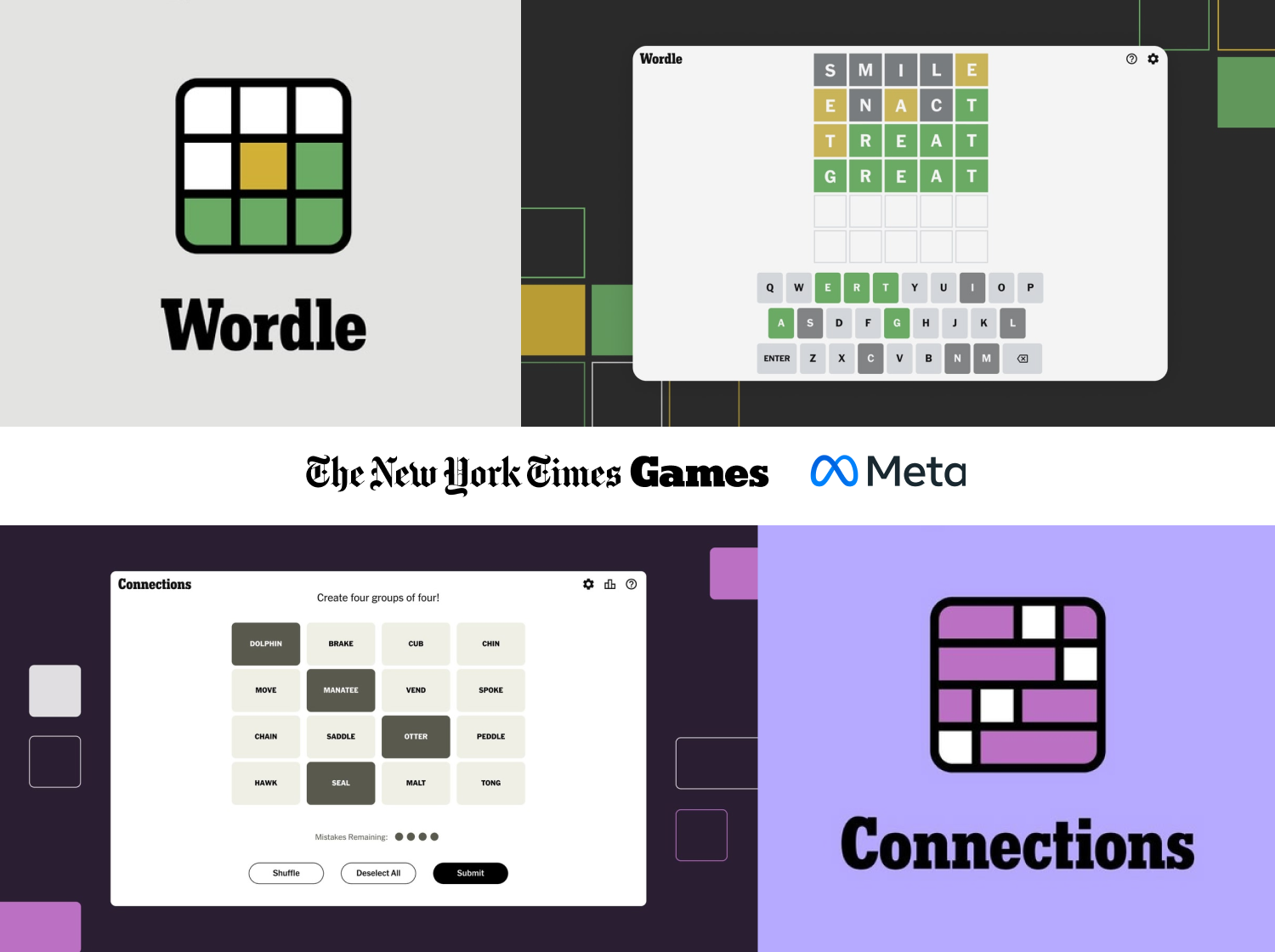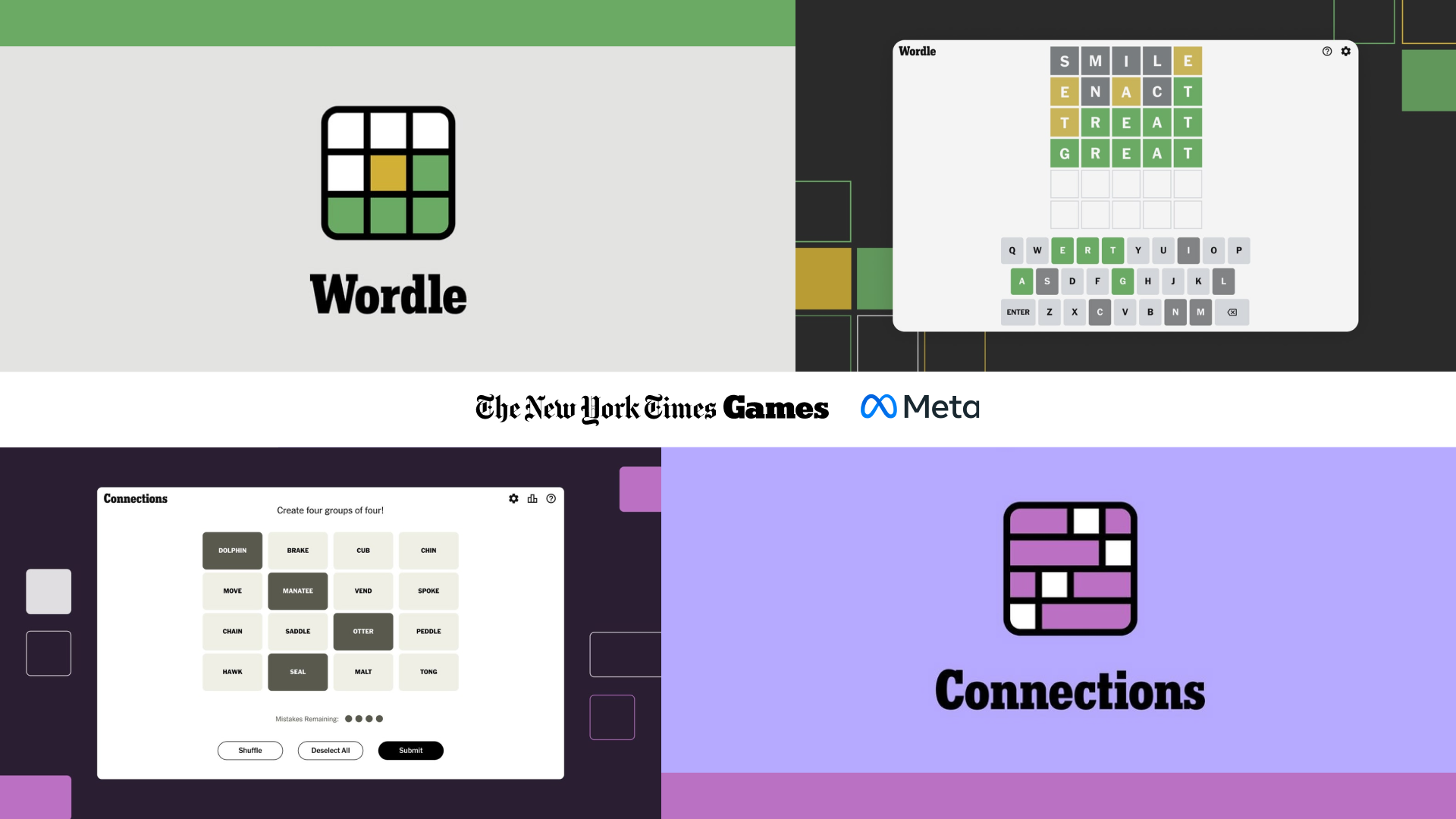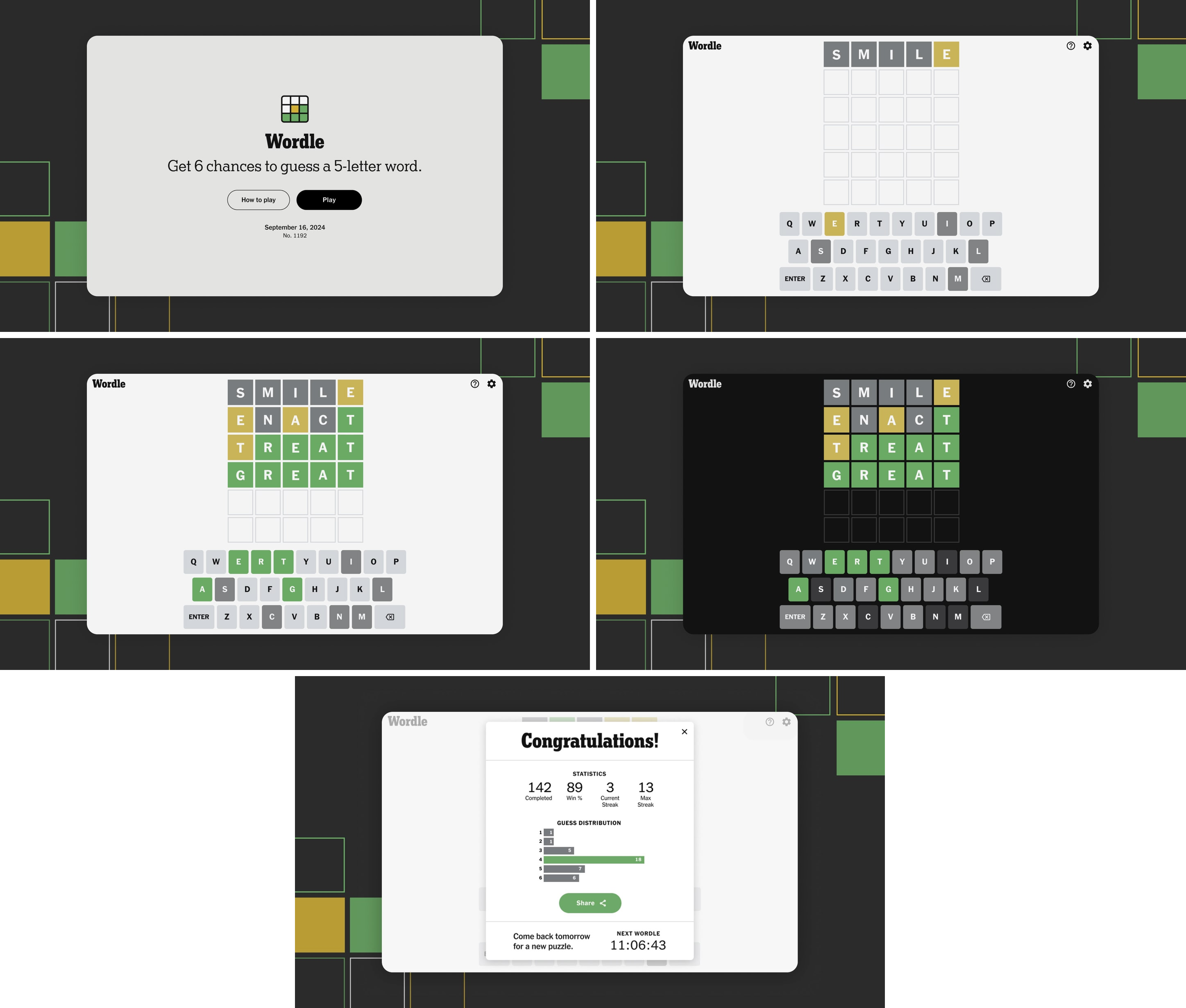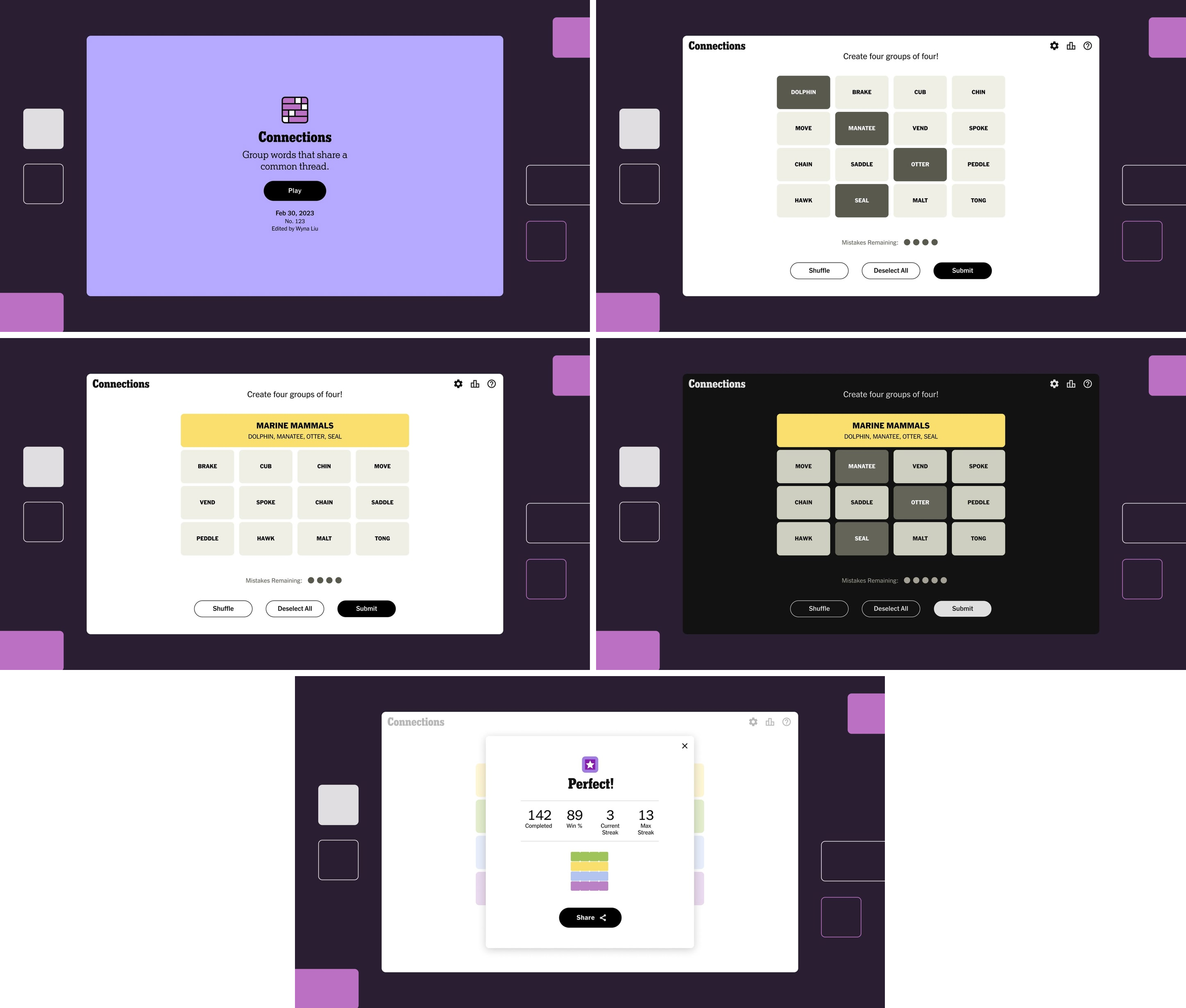
Mixed Reality Games
role
UX Design
client
New York Times Games x Meta
year
2025
Overview: Extending an Ecosystem into VR
As part of a strategic collaboration between The New York Times and Meta, I led UX design for bringing NYT Games, including Wordle and Connections, to the Meta Quest headset. This was a public release promoted to both NYT readers and the Quest user base, and it served as a key deliverable within a broader R&D and platform expansion effort.
Beyond translating gameplay into VR, I focused on maintaining continuity with the Times’ existing game ecosystem across web and mobile. The challenge was to adapt familiar interaction patterns into a spatial context while ensuring the experience still felt cohesive with the established brand and player expectations. This work highlighted how cross-platform consistency and system-level design patterns can guide successful extensions into new mediums.
Role
Due to limited engineering bandwidth and the lack of support from the internal NYT Games team, the scope focused on adapting existing 2D web games for VR rather than reimagining them as immersive 3D experiences. As the sole designer on the project, I was responsible for:
- Creating responsive layouts and adapting visual styling for the resizable in-headset panel.
- Adjusting colors, contrast, and interaction cues for VR usability while preserving the recognizable NYT Games brand.
- Designing interaction systems for gaze, controller input, and hand tracking within the constraints of the existing game logic.
- Partnering directly with an engineer from concept through launch, including post-release updates.
Recording from Meta Quest headset of live gameplay

Release
The initial reception was modest, primarily because the experience remained 2D and did not take full advantage of spatial VR. However, the project successfully met its contractual goals and allowed us to gather valuable feedback that informed later improvements. One notable enhancement was the addition of scoring and streak tracking, a key feature that I had advocated for from the start. This feature was initially excluded due to platform limitations, but strong user demand led to its implementation in a subsequent update.
Outcome / Impact
This project demonstrated how familiar 2D gameplay patterns could be extended into a spatial medium without losing continuity across platforms. By preserving recognizable interaction models and visual language, I helped establish foundations for how existing products in the Times’ game ecosystem could scale into new environments while maintaining brand cohesion.
Reflection
This project strengthened my skills in designing for immersive platforms with tight constraints. It also reinforced the importance of aligning user expectations with product strategy, especially when working across teams with varying priorities and timelines.
Application Screens





